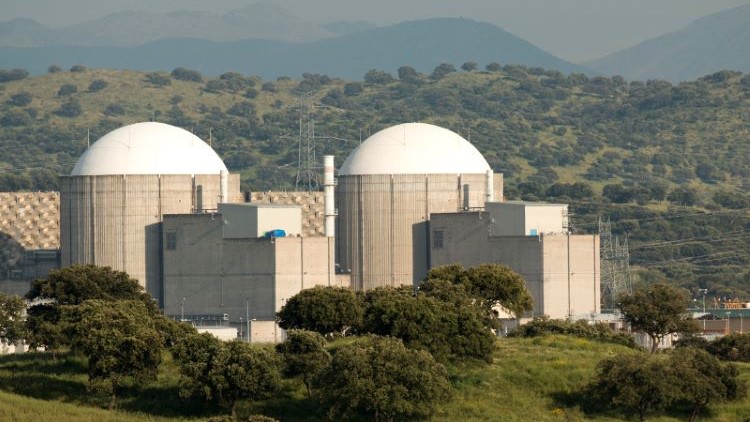Eduardo González
ENUSA Industrias Avanzadas, the Spanish state-owned company in charge of supplying nuclear fuel to the Spanish nuclear power stations, imported up to three times Russian uranium, through the United States, the United Kingdom and Germany, since the invasion of Ukraine began, although it has begun to turn to other supply channels for reducing the Russian dependency in spite of the fact that uranium is not included in the sanctions imposed by the EU.
This was communicated by the Government on April 17 in response to a question from MP Juan López de Uralde, of the Confederal Parliamentary Group Unidas Podemos-En Comú Podem-Galicia en Común, regarding uranium imports from Russia. In the question, Mr. López Uralde states that ENUSA’s data indicate that 38% of the uranium imported by Spain comes from Russia and that the Spanish nuclear power stations “depend, therefore, 40% of the uranium imports from Russia”.
The MP of Unidas Podemos regrets that uranium does not appear among the Russian energy products embargoed by the EU due to the Russian invasion of Ukraine, as do, however, oil or gas. As a result, “the import of uranium from Russia continues unimpeded” and on Russia “depends the production of between 15 and 20% of the uranium concentrates which, after enrichment, are used by European nuclear power plants in their reactors”. “There is no other justification for continuing with these imports than the interests of the European nuclear industry”, denounces López Uralde.
Consequently, Unidas Podemos asks the Government about the number of uranium and nuclear material transports of Russian origin which have taken place since the Russian invasion of Ukraine began, what is the amount imported this year, what fraction of the uranium imported by ENUSA comes from Russia, what part of this uranium is consumed in the Spanish nuclear power stations and what percentage it represents with respect to the total uranium consumption in Spain. Equally, it asks why the European Union has not imposed an embargo on the imports of uranium from Russia and whether “Spain is going to promote the prohibition of imports of Russian uranium”.
In its answer, the Government informs that ENUSA has received “three shipments of enriched uranium of Russian origin” through the United States, the United Kingdom and Germany, three countries which “have allowed the delivery on their territory of uranium of Russian origin”. Specifically, the uranium received in the USA was transported to Spain last March 22 for consumption by Spanish nuclear reactors. As for the percentages, uranium coming directly from Russia accounted, in 2021, for 19.69% of the total imported, while the data for 2022 will be published in the next ENUSA report.
Equally, the Government assures that, “in view of the war situation in Europe and the recommendation of the European Union to reduce the energy dependence of Russian origin, ENUSA has adopted the necessary measures to mitigate the effects of the eventual lack of supply of Russian uranium”, measures which consist in “optimizing the flexibilities allowed by the existing contracts with other suppliers, the uranium stocks which are available and complemented with additional uranium purchases if necessary”. Since the beginning of this year, approximately 18 tons of enriched uranium have been transported from the USA to Spain, all of which will be used in Spanish nuclear power plants.
“With the flexibility of existing contracts with other suppliers, as well as depending on the uranium stocks available, there is currently no urgency to import uranium of Russian origin”, the Government assures. “This policy of diversification of uranium stocks and the stocks available to Spanish electricity companies guarantee the supply to Spanish nuclear power plants for the next few years”, it adds.
In its answer, the Executive admits that, “up to now, none of the sanctions imposed on Russia as a result of the war conflict in Ukraine affects ENUSA’s lines of business or the import of raw materials such as uranium”. “In any case, any kind of sanction or restriction which affects the import of any product or raw material from another country, must be contemplated within the framework of the European Union, and likewise, coordinated measures can be established to supply the European needs, developing European capabilities, as it is being done in other fields and sectors”, it concludes.







